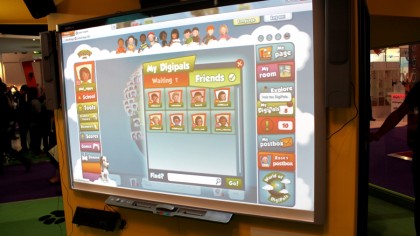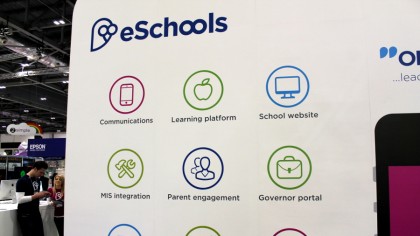Five ways tech is transforming the classroom in 2014
The latest elearning trends from BETT 2014
According to Blackburn this can give students a grounding in design, and also provides an insight into business and economics. He adds: "If they're producing something, the machine will often tell you the amount of plastic it'll use so students can cost a project rather than just focusing on making the physical objects."
3D printing isn't all about serious manufacturing methods though. Blokify, a Minecraft-inspired mobile app, lets people create 3D structures by piling blocks on top of each other, which can be then be printed by compatible devices.
3. Gamification promises to make learning fun

Gamification is a buzzword often slung about in business circles to describe the application of game-like elements to non-game scenarios to make them more engaging. Salesforce.com, for example, offers a platform that lets companies reward their sales teams for completing certain by gaining 'levels' and progressing up the ranks.
Being natural creatures of the playpen and willing challengers, younger children and teens are considered a good fit for gamification. Spotting an opportunity, vendors are developing anything from mobile apps to cloud-based learning portals that offer competitive, interaction-based learning and discovery.
One particular website demoed to us, Little Bridge World, is a moderated online community with over five million young members. The only language allowed is English, a move imposed to help them communicate with others around the world while playing games to learn, improve grammar and solve problems.
Emma Rogers, the company's co-founder and CEO, says that gamification is catching on with students and teachers due to tablet manufactures such as Samsung (with its Galaxy Tab 3 Kids) blurring the lines between what children are doing at home and at school.
She says: "Children are suddenly an interesting market for tablet manufacturers. The next stage is that companies don't want to just sell games and apps for no reason - they want to sell ones that have value where kids will learn something.
Are you a pro? Subscribe to our newsletter
Sign up to the TechRadar Pro newsletter to get all the top news, opinion, features and guidance your business needs to succeed!
"Also, teachers are realising that kids are not going to put up with the quality of products developed for education. They have to look good, feel good and work like the products that kids naturally choose to have on their tablets or laptops."
That rules out a Tamagotchi comeback, then.
4. Everything is moving to the cloud

Cloud computing's impact on elearning has become more apparent in recent years as teachers, governors and students get connected through internet-based services and portals.
Many services intend to replace free open source-based community web applications (such as Moodle), but schools have to consider factors such as necessity, cost and complexity, in addition to whether they will integrate into existing Management Information Systems (MISs).
They allow parents to pay school fees online, view their children's work, fill out consent forms, view letters and messages and carry out other parental engagements by logging on through a browser.
eSchools, which offers a cloud-based virtual learning environment (VLE), provides unlimited file storage to teachers who can access data about pupils from any internet-connected PC and can set projects and access calendars.
Additionally, governors can store documents in the cloud, exchange messages and view school attendance and other statistics. The company's platform is paid for on a per-pupil basis (pricing is based on a two-tier primary and secondary school system), with teacher, parent, governor and office accounts thrown in for free.
Jon Coleman, Business Development Manager for eSchools, says that moving to the cloud gives developers of VLEs an opportunity to constantly react to feedback from schools and plan upcoming features.
He says: "I've spent many hours working with schools over the years and have tried different learning platforms, but never had the opportunity to get every teacher engaged - the cloud allows us to do that."
